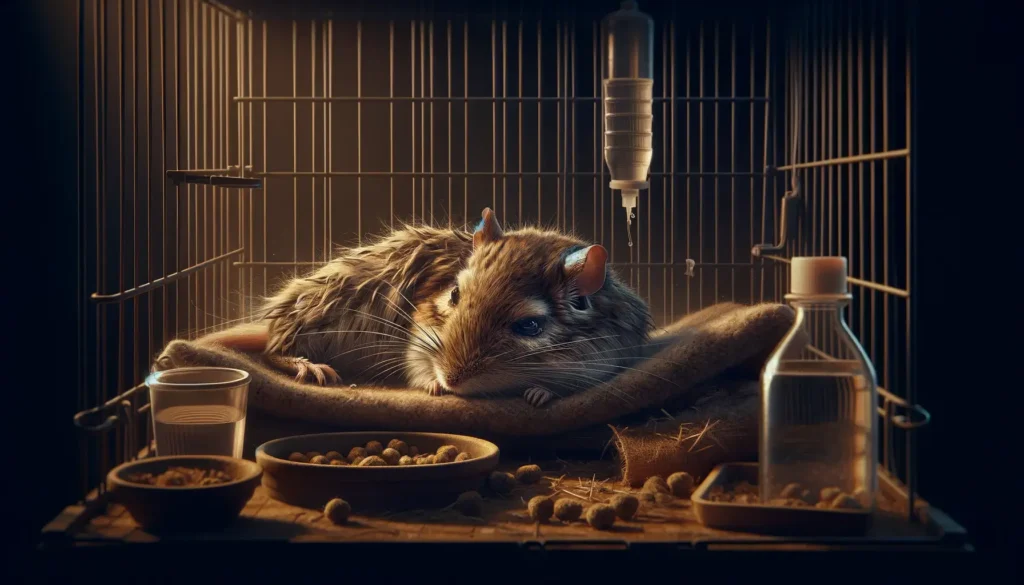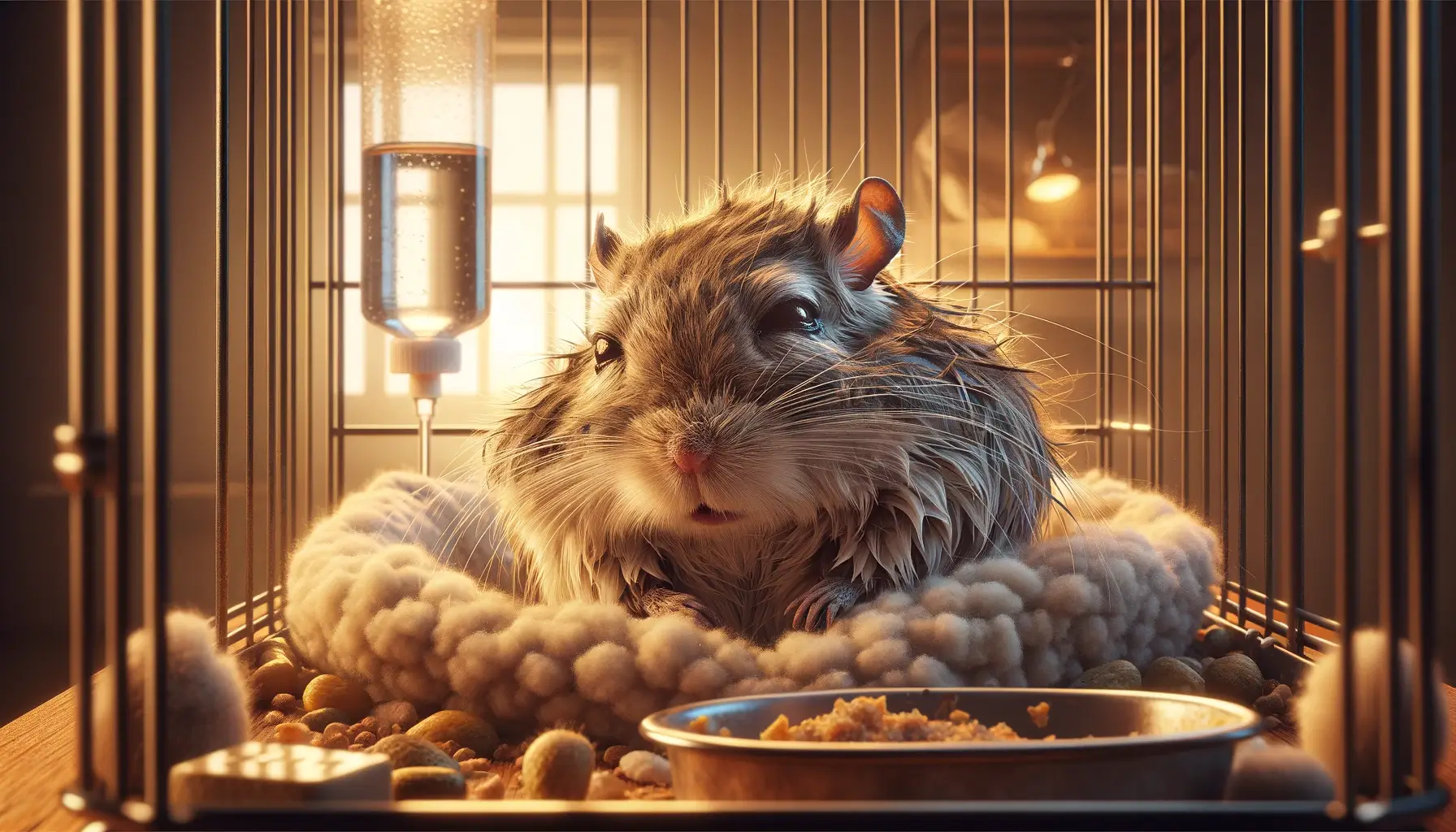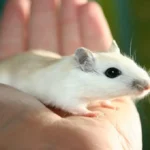When it comes to the health and well-being of our furry friends, especially those as endearing as gerbils, understanding the signs, symptoms, and prevention of common illnesses is paramount.
One such condition that often raises concern among rodent owners is Wet Tail, a disease notorious for its severity and rapid progression.
In this article we will discuss whether your gerbil companions are at risk of Wet Tail, and also we will shed light on its causes, symptoms, and how it differs from other health issues gerbils may face.
Understanding Wet Tail
Wet Tail, scientifically known as proliferative ileitis, is a distressing condition predominantly observed in hamsters, though it can affect other rodents. Characterized by severe diarrhea, lethargy, and loss of appetite, Wet Tail is often a death sentence if not promptly and properly treated.
The disease is primarily stress-induced, with a bacterial culprit, Lawsonia intracellularis, playing a central role in its development. The bacteria lead to an overgrowth in the intestines, resulting in inflammation and the characteristic wetness around the tail area due to uncontrollable diarrhea.
Symptoms of Wet Tail extend beyond mere diarrhea. Affected rodents may exhibit a foul odor, a hunched back due to abdominal pain, excessive sleeping, and a drastic reduction in food and water intake.
The rapid progression of the disease, which can lead to death within 24-48 hours of symptom onset, underscores the urgency of veterinary intervention.
Do Gerbils Get Wet Tail?

The straightforward answer is no; gerbils do not get Wet Tail in the same way hamsters do. The primary reason lies in the difference in their gastrointestinal flora. Gerbils do not naturally harbor Lawsonia intracellularis, the bacteria responsible for Wet Tail in hamsters, making them inherently resistant to this specific condition.
However, this does not mean gerbils are immune to all forms of diarrhea or gastrointestinal distress. Similar to Wet Tail, gerbils can suffer from stress-induced diarrhea, which, while not caused by the same bacteria, presents with similar symptoms.
The root causes of such stress in gerbils can include environmental changes, improper handling, dietary indiscretions, and overcrowding. Recognizing these stressors and mitigating them is crucial in preventing the onset of diarrhea in gerbils.
In essence, while gerbils are spared from the specific agony of Wet Tail, they are not invulnerable to gastrointestinal issues. Understanding the nuances of gerbil health, recognizing the signs of stress and illness, and providing a stable, nurturing environment are key steps in ensuring the longevity and happiness of these delightful creatures.
As we continue to explore the intricacies of gerbil care, it becomes evident that knowledge, vigilance, and prompt action are our best tools in safeguarding the well-being of our petite companions.
Navigating Health Concerns in Gerbils: Beyond Wet Tail
Tyzzer’s Disease vs. Wet Tail in Gerbils
While gerbils are fortunate to dodge the bullet of Wet Tail, they aren’t out of the woods when it comes to gastrointestinal woes. A condition eerily similar in symptoms but distinct in its causative agent is Tyzzer’s disease.
Unlike Wet Tail, which is caused by Lawsonia intracellularis, Tyzzer’s disease is the work of Clostridium piliforme, a bacterium that wreaks havoc in a slightly different manner but with potentially devastating outcomes.
Tyzzer’s disease can lead to severe diarrhea, lethargy, and loss of appetite in gerbils, mirroring the distressing symptoms of Wet Tail. The key to battling this disease lies in swift diagnosis and treatment.
A fecal PCR test is often required for a definitive diagnosis, emphasizing the importance of veterinary expertise in managing gerbil health. Early intervention with specific antibiotics and supportive care can make all the difference, underscoring the critical nature of recognizing symptoms and seeking professional help promptly.
Preventing Diarrhea in Gerbils
Prevention is always better than cure, especially when it comes to the health of our gerbil friends. Ensuring a balanced diet is foundational. Gerbils thrive on a mixture of high-quality gerbil pellets and a limited amount of seeds.
Overindulgence in fresh fruits and vegetables can upset their delicate digestive systems, leading to diarrhea. Moderation and variety are key in crafting a diet that supports their overall well-being.
Stress reduction is another crucial aspect of prevention. Gerbils are sensitive to environmental changes, loud noises, and rough handling. Creating a calm, stable environment with regular, gentle interaction can help minimize stress, reducing the risk of stress-induced diarrhea.
Regular cage cleaning without the use of harsh chemicals also plays a vital role in maintaining a healthy habitat for your gerbils.
When to See a Vet
Recognizing when your gerbil needs professional medical attention is a vital skill for any pet owner. Symptoms such as unexplained weight loss, changes in eating or drinking habits, unusual lethargy, or any signs of diarrhea warrant a visit to the vet. Early detection and treatment of illnesses can significantly improve outcomes for your gerbil.
Finding a vet experienced in treating small animals like gerbils is essential. Don’t hesitate to ask about their experience with gerbils specifically, as not all vets may be familiar with their unique needs.
Preparing for potential vet visits by setting aside a small emergency fund can also alleviate the stress of unexpected medical expenses, ensuring that your gerbil receives the care it needs without delay.
FAQs
Can gerbils die from diarrhea?
Yes, gerbils can die from diarrhea if it’s left untreated. Diarrhea can lead to dehydration and loss of essential nutrients, which can be fatal. It’s crucial to address any signs of diarrhea in your gerbil promptly by consulting with a veterinarian.
How can I tell if my gerbil is stressed?
Signs of stress in gerbils include excessive chewing on cage bars, overgrooming (which can lead to bald patches), hiding more than usual, and changes in eating or sleeping habits. Creating a stable environment and handling your gerbil gently can help minimize stress.
What should I feed my gerbil to prevent diarrhea?
A balanced diet for a gerbil includes high-quality gerbil pellets and a limited amount of seeds. Fresh fruits and vegetables should be given sparingly, as their high water content can cause diarrhea. Always introduce new foods gradually to avoid upsetting your gerbil’s stomach.
Conclusion
Navigating the health concerns of gerbils requires a blend of knowledge, vigilance, and prompt action. While gerbils are not susceptible to Wet Tail, conditions like Tyzzer’s disease pose a significant risk. Understanding the symptoms and causes of common gerbil illnesses is the first step toward ensuring their well-being.
Preventive measures, such as providing a balanced diet, reducing stress, and maintaining a clean living environment, are key to avoiding health issues. Recognizing when to seek veterinary care is equally important, as early diagnosis and treatment can save your gerbil’s life.











